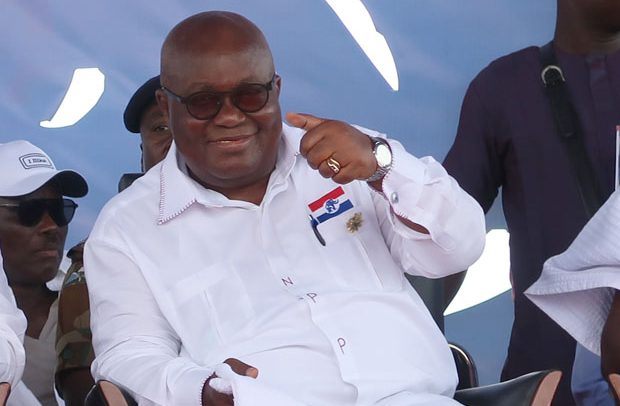President Nana Akufo-Addo
The Political Science Department of the University of Ghana has predicted that incumbent President Nana Akufo-Addo will win the upcoming December 7, 2020 polls by 51.7 percent.
Also, the Department has predicted that former President John Mahama will poll 40.4%.
The Department made this known in its latest survey report.
About 12,000 people were interviewed across 100 constituencies in the 16 regions.
“The decision to vote in 2020 elections has been made by the voters already,” the report said.
“When asked to unveil their decisions about whether they would vote or not, an overwhelming 81.6% declared that their decision is definite”.
“Only 14% said they would probably vote, 2.2% have not decided and 1.5% declared not to vote at all.”
“For voters, voting in elections is determined by the issues candidates present to them during the campaigns. In this particular election, policies that the future government is likely to implement (35.8%), content of campaign messages candidates put across (23.8%) more than management of the COVID-19 (8.2%) more than corruption (4.0%) would shape their voting decision.”
“It must be pointed out that while voters voting decision revolves around campaign messages and policies of the future government, these are issues that bother on the economy – such as employment and improvement in living standards. Unlike in previous elections when voters were keen on issues about corruption and dumsor, in this election, corruption is not a critical issue that will influence voters’ choices at the polls (See Table 5).”
The report said all respondents are registered Ghanaian voters.
According to the report, most voters have been attracted to the NPP and NDC.
However, it said not all voters have stayed with the party in all the elections, adding that some a minority have detached from their parties in some of the elections.
Nevertheless, for those who have b and n clued to their parties, a whopping 89.7% are ready to vote for their daring parties.
It stated that there was a dramatic change of minds in the 2016 general elections.
By Melvin Tarlue


